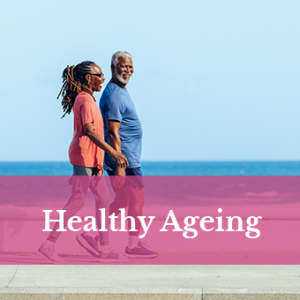
Integration of activities to promote Healthy Ageing among elderly in a low resource setting of Sri Lanka.
Presenter(s):
Sriromi Maduwage, Ministry of Health, Sri Lanka
Abstract
Integration of activities to promote Healthy Ageing among elderly in a low resource setting of Sri Lanka.
Sri Lanka, one of the rapidly aging countries in the South-East Asia region. According to the 2012 Population and Housing Census, 12.3% of Sri Lankans were aged 60 years and more.
By 2030, one-fifth of the population is expected to be elderly, with that figure rising to one-fourth by 2041 . The majority of elderly individuals reside in rural areas (77%). Of the nine administrative provinces western province has the highest number of elderly and low resource settings are prevalent in the Colombo district within the Western province. Athurugiriya area was selected as a study setting with low resource setting according to the existing records and returns. The existing disparities in service provision for elderly across different geographical distribution of this setting found to be one of the major challenges in providing equitable services for elderly.
Objective was to describe the effectiveness of integrating healthy ageing activities among elderly in the selected low resource setting.
Methodology was designed in a phase manner. Phase one was to conduct a need assessment survey to identify the socio demographic status, health issues and the needs of the elderly at the setting. Community based survey was conducted with the interviewer administrated questionnaire. Sample size was calculated using standard method and probability proportion cluster sampling was used. Area resource related to elderly care and existing services were mapped with records , returns and the in-depth interviews. According to the results needs were prioritized. Activities were identified and implemented.. Activities were implemented at both a primary care institution and community. WHO Integrated care of older persons manual was adapted to Sri Lanka and based on that health and non health workforce were trained on implementing integrated care of older persons. Screening clinics were initiated with a baseline assessment at the primary care institutions and the community. At the same time physical activity programmes, meditation, mindfulness programmes, recreational activities, home gardening were implemented. Dementia screening and dementia prevention activities were conducted simultaneously. Social and economical activities for the study population were done in collaboration with stakeholders. All activities were based on pre,post indicators. Review meetings were conducted periodically. Post assessment was done six months after the implementation of activities.
Study population was 284 . Majority of elderly of this setting were aged 60-69 years (44%) and 70-79 years (48%). Of them majority were females. of the participants 68% of elderly participated for the physical activities, 14% income generation activities and 28% attended for the dementia prevention activities. Of the screening for the integrated care of older persons majority were 78% had mobility difficulties and 79% had vision impairments. Significance of pre, post evaluation was done using a chi-squar test. Hospital visits were significantly reduced with implementation of activities.
Conclusion- Integration of activities identified on priority need based has more positive effects on promotion healthy ageing in a low resource setting.
Key words : integration, healthy ageing, low resource setting ,
Bio(s):
A senior Public Health Specialist(Community Medicine), extensive work experience in public health programmes including Elderly care & Disability care programmes
related to policy, planning, implementation, monitoring and evaluation at Provincial National level and and internationally. Leading role on improving accessibility facilities and assistive technologies for older persons with disabilities and
primary care reforms including integrated care for older persons & strengthening of primary care settings. Under United Nations Decade of Healthy Ageing recognized as one of a first ever healthy ageing 50 world leaders transforming the world to be a
better space to grow older. Technical lead in adaptation and preparation of WHO prioritized assistive devices and assistive technology list for the older persons
, completion of many community-based programmes for older persons including capacity enhancement project for older persons and conducting community-based sensitization programmes for youth on healthy ageing.Technical lead in developing Elderly Health Policy. -Adapting integrated care for older persons training manuals for the primary health care workforce (ICOPE) conducting capacity and building programmes for the health care workforce island wide.Developing strategic frame work and results-based framework on elderly health care with a special focus on integrated care, strengthening of primary health care reforms at Sri Lanka. A researcher with many publications.
